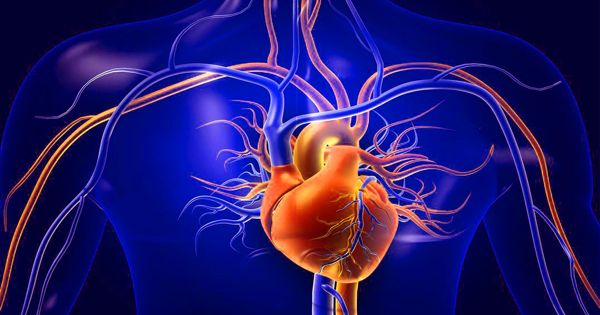Vitamin A is the generic term for a group of fat-soluble compounds highly important for human health. It can be found in many fruits, vegetables, eggs, whole milk, butter, fortified margarine, meat, and oily saltwater fish. It can also be made in a laboratory. Carotenoids are a group of yellow or orange chemicals found in plants. Some of these can be converted to vitamin A in the body.
It is a powerful antioxidant and acts as a hormone in the body, affecting the expression of genes and thereby influencing phenotype. It also helps the heart, lungs, kidneys, and other organs to function correctly.
Vitamin A compounds are found in both animal and plant foods and come in two different forms: preformed vitamin A and provitamin A.
Preformed vitamin A is known as the active form of the vitamin, which your body can use just as it is. It’s found in animal products including meat, chicken, fish, and dairy and includes the compounds retinol, retinal and retinoic acid.
Provitamin A carotenoids alpha-carotene, beta-carotene, and beta-cryptoxanthin are the inactive form of the vitamin found in plants.
Good sources of vitamin A include:
- cheese
- eggs
- oily fish
- fortified low-fat spreads
- milk and yoghurt
liver and liver products such as liver pâté – this is a particularly rich source of vitamin A, so we may be at risk of having too much vitamin A if we have it more than once a week (this is particularly important if you’re pregnant)
We can get vitamin A by including good sources of beta-carotene in our diet, as the body can change this into vitamin A.
The main food sources of beta-carotene are:
- yellow, red and green (leafy) vegetables, such as spinach, carrots, sweet potatoes and red peppers
- yellow fruit, such as mango, papaya, and apricots
Vitamin A is most commonly used for treating vitamin A deficiency. People also use vitamin A to reduce complications of diseases such as malaria, HIV/AIDS, and measles, and for fertility, diarrhea, vision, child development, skin disorders, infections, and many other conditions, but there is no good scientific evidence to support most of these uses.
Benefits of Vitamin A –
As vitamin A affects a wide range of body functions, a deficiency can lead to a variety of problems.
These include:
- night blindness
- a higher risk of infections, especially in the throat, chest, and abdomen
- follicular hyperkeratosis, leading to dry, bumpy skin.
- fertility issues
- delayed growth in children
The amount of vitamin A adults aged 19 to 64 need is:
- 0.7mg a day for men
- 0.6mg a day for women
People should be able to get all the vitamin A they need from their diet. Any vitamin A our body doesn’t need immediately is stored for future use. This means we don’t need it every day.
An adequate amount of vitamin A may have the following benefits.
- Lowering cancer risk – Adequate intakes of carotenoids from fruits and vegetables are associated with a lower risk of lung cancer, but the use of beta-carotene and vitamin supplements have not shown the same results. One meta-analysis suggests that some forms of vitamin A may help protect against prostate cancer. Studies in Japan have suggested that beta-carotene may help prevent colon cancer.
- Treating type 2 diabetes – Retinoic acid, a derivative of vitamin A, has been found to normalize blood sugar in mice with diabetes.
- Healthful skin and hair – Vitamin A is important in the growth of all bodily tissues, including skin and hair. It contributes to the production of sebum, the oil that helps maintain levels of moisture in the skin and hair.
Vitamin A is vital for many important processes in our body. It’s used to maintain healthy vision, ensure the normal functioning of our organs and immune system, as well as establishing normal growth and development of babies in the womb.
Both too little and too much vitamin A could have negative effects on our health. The best way to ensure we get the balance right is to consume vitamin-A-rich foods as part of our normal diet and avoid supplementing with excessive amounts.
Side Effects –
Long-term use of large amounts of vitamin A might cause serious side effects including fatigue, irritability, mental changes, anorexia, stomach discomfort, nausea, vomiting, mild fever, excessive sweating, and many other side effects. In women who have passed menopause, taking too much vitamin A can increase the risk of osteoporosis and hip fracture.
There is also growing concerned that taking high doses of antioxidant supplements such as vitamin A might do more harm than good. Some research shows that taking high doses of vitamin A supplements might increase the chance of death from all causes and possibly other serious side effects.
The highest risk of deficiency is among:
- preterm infants
- infants and children in developing countries
- pregnant and lactating women in developing countries
- people with cystic fibrosis
The weight-loss drug Orlistat, also known as Alli and Xenical, reduces the body’s ability to absorb fat-soluble vitamins such as vitamin A, increasing the risk of deficiency.
Vitamin A supplements are available for those who have difficulty absorbing the nutrient, but it is best to meet needs through food, not in isolation. Preformed vitamin A can be toxic when consumed in excessive amounts, either through diet or supplementation.
According to some research, having more than an average of 1.5mg a day of vitamin A over many years may affect our bones, making them more likely to fracture when we are older. This is particularly important for older people, especially women, who are already at risk of osteoporosis, a condition that weakens bones.
Many multivitamins contain vitamin A. Other supplements, such as fish liver oil, are also high in vitamin A. If people take supplements containing vitamin A, make sure their daily intake from food and supplements doesn’t exceed 1.5mg. If they eat liver every week, don’t take supplements that contain vitamin A.
Information Sources:
















